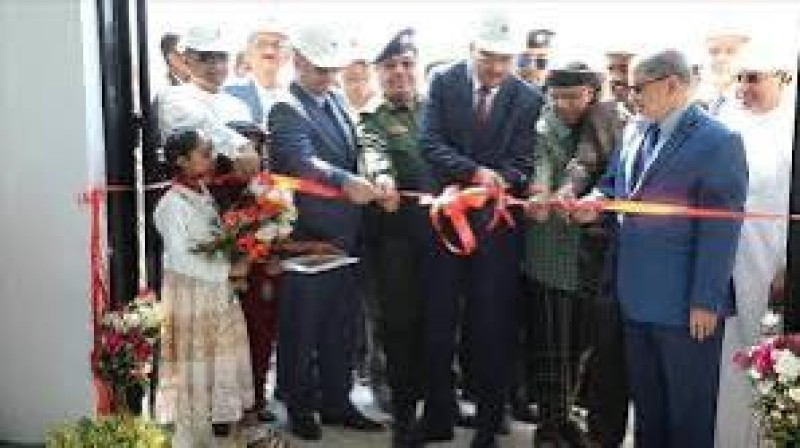Yemen Humanitarian Update - Issue 10 / October 2021


HIGHLIGHTS
Scaling response after Ma’rib, Shabwah and Al Bayda escalation
Civilians faced with rising violence in Yemen
Aid must be sustained to avoid a return to near famine
Restoring agriculture livelihoods
Women and girls’ protection needs urgent, but resources are limited
Yemen COVID-19 Vaccination Campaign Update
SCALING UP RESPONSE AFTER MA’RIB, SHABWAH AND AL BAYDA ESCALATION
Humanitarian partners are scaling up response to the rapidly changing situation in parts of Ma’rib, Shabwah and Al Bayda governorates, where escalating hostilities since early September have induced civilian casualties, renewed displacements and further restricted civilians’ movements as well as humanitarian organizations’ access to people in need.
Between 1 and 23 October, more than 1,130 families (more than 6,700 people) were displaced in Ma’rib Governorate, according to the International Organization for Migration (IOM). More than half of these fled to Ma’rib City, about 24 per cent went to safer areas of Al Jubah District and another 22 per cent to Ma’rib Al Wadi. Some were displaced to Sirwah and Jabal districts. In September, nearly 10,000 people were displaced in Ma’rib Governorate – the highest displacement rate recorded in the governorate in a single month this year. Overall, over 55,000 people have been displaced in Ma’rib between January and September this year.
While hostilities are complicating response efforts, aid organizations have continued to deliver life-saving assistance. Inter-agency coordination efforts are focused on facilitating access and scaling up response, especially for southern Ma’rib Governorates’ Al Abdiyah District, which is among the areas most severely affected by these escalations. Initial aid supplies have been delivered to the area; registration and distribution activities in the affected area have begun, as well as efforts to understand the scope of needs. “We are forward-deploying into the area a lot of supplies, food, medicine but also rapid response kits that provide basic necessities for those who are displaced,” said the Humanitarian Coordinator for Yemen, Mr. David Gressly. Some 122 metric tons (MT) of food were delivered to assist nearly 2,500 families (17,400 people) in Al Abdiyah District as part of September rations. Since the third week of October, partners started general food distribution in Al Juba as part of October rations. More food aid distributions are expected in other areas. Food partners support nearly 950,000 people across Ma’rib, Shabwah and Al Bayda governorates.
Medical supplies have reached parts of Ma’rib, Shabwah and Al Bayda governorates. The Alshaheed Ali Abdulmogni Hospital which was partially damaged due to an attack on 12 October, resumed operations on 20 October. The damage was severe, requiring repairs and new medical equipment. The hospital is also severely understaffed following the attack. Essential medical equipment, supplies and Personal Protection Equipment (PPE) were delivered to the hospital on 25 October. The need for medical supplies is also urgent in Al Abdiyah District, whose population includes more than 1,000 pregnant women requiring maternal health services.
The Rapid Response Mechanism (RRM) teams were able to reach Al-Abdiyah District on 20 October and registration of beneficiaries commenced in Qania subdistrict. The first batch of 2,000 RRM kits was delivered and distributions are ongoing in Al Abdiyah District with more RRM teams expected to be deployed shortly. The second batch of 2,000 RRM kits have been moved from Sana’a to a warehouse in Qania which is closer to Alabdiyah and these will cater for those stranded in the district. RRM teams distributed in-kind packages of hygiene items, immediate ready-to-eat food rations and female dignity/transit kits. These cater for urgent needs of displaced families for 5 to 7 days.
In areas hosting displaced populations, response teams have also scaled up response providing shelter, cash, food baskets, soap, buckets, mosquito nets and other essential items to newly displaced people in 64 sites hosting close to 27,000 households. WASH teams have been trucking in water, building latrines and distributing hygiene items in areas within five to ten kilometers from the frontlines.
More than 250 families newly displaced from Harib, Ragawan, Rehaba and Juba districts to Ma’rib City and Ma’rib Al Wadi have also received relief items, while health teams, including six mobile medical clinics, are on the ground providing emergency health care services and have re-stocked local clinics and hospitals with necessary supplies in displacement sites and in areas where people are sheltering with host communities.
Aid organizations continue to conduct assessment missions to affected areas in the three governorates, to assess the security situation, meet partners and explore humanitarian needs and on-theground capacities to deliver assistance where it is needed.
Mr. Gressly, accompanied by the Secretary of the General Supreme of the Council for the Management and Coordination of Humanitarian Affairs (SCMCHA), together with OCHA, UNFPA and UNICEF leadership in Yemen, conducted a three-day mission to Al Abdiyah District of Ma’rib Governorate. Part of the objective of the mission was to facilitate sustained access and movement for humanitarian workers to the Al Bayda Governorate and neighboring affected districts where priority needs have been identified.
Active hostilities, the presence of landmines, insecurity, poor road infrastructure within sub-districts of Al Abdiyah continue to impede timely delivery of aid to some areas. Poor telecommunication network coverage is also affecting the ability of response teams to effectively coordinate response.

Aden — Ports under the authority of Yemen’s internationally recognized government have received more than two million metric tons of fu…

Mukalla — Local authorities in Hadramout have announced the inauguration of Yemen’s first solar-powered cement station, a landmark proj…

AbuDhabi -- The United Arab Emirates has pledged $1 billion to bolster Yemen’s electricity sector, marking one of the largest development com…